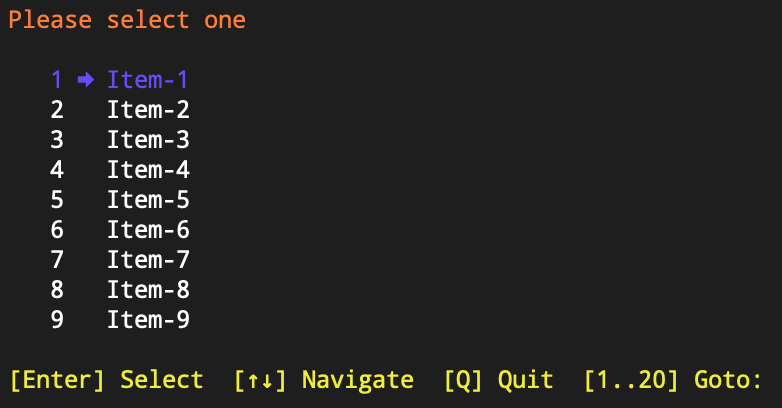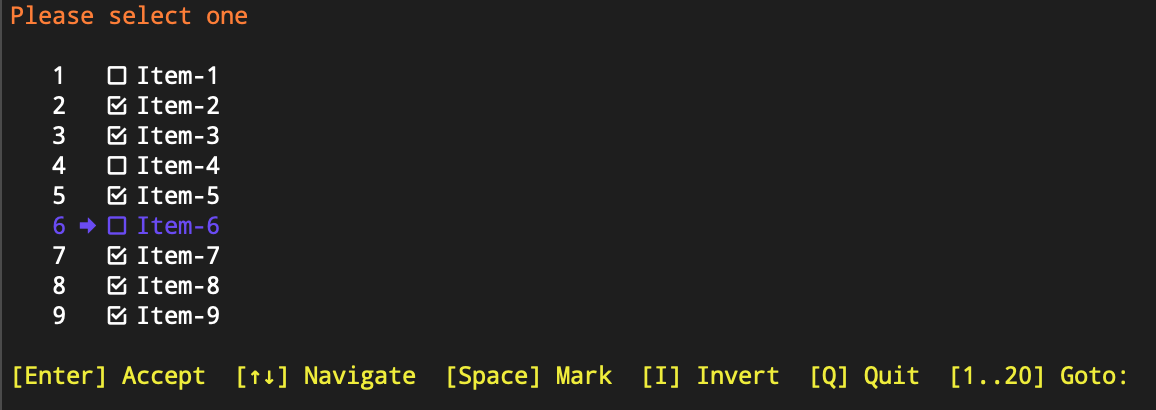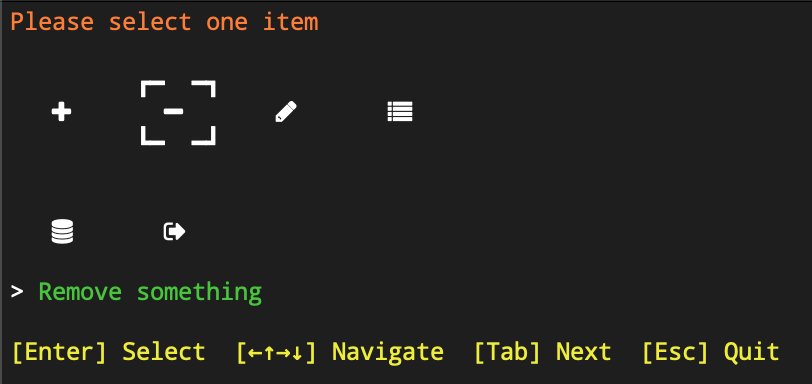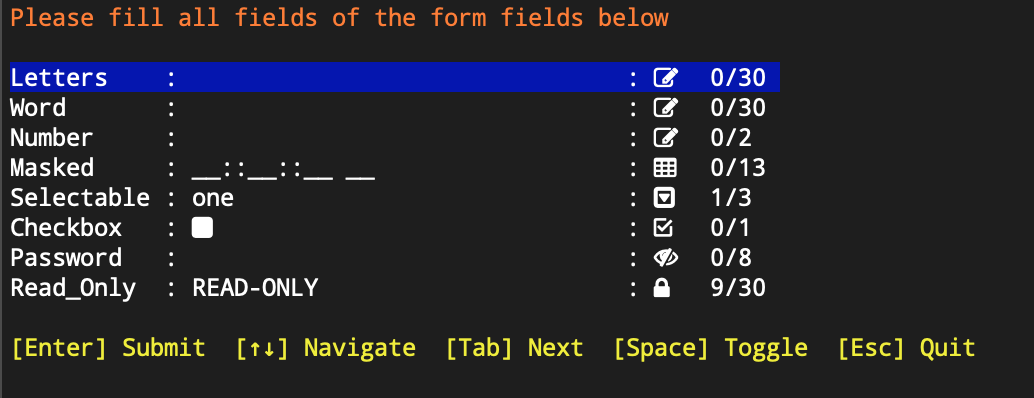HomeSetup Python Library - HSPyLib
This is a library for creating Real and Serious python applications. It uses gradle to build and manage the project. Many CLI improvements are also available for use. New input methods and ways to show options to the user.
HSPyLib is a Python library that will elevate your experience to another level. It relies on well known principles as
SOLID, DRY (Don't Repeat Yourself), KISS (Keep It Simple, Stupid) and YAGNI (You Ain’t Gonna Need It). It provides many
frameworks and facilities to help you create mature python3 applications "PYCSNBASS" (Python Code Should Not Be A Simple
Script).
HSPyLib is a part of the HomeSetup project.
Highlights
- Easy installation.
- Manager application that provides a helper to scaffold you applications.
- Widgets application that provides running built-in and custom widgets.
- Enhanced TUI helpers and input methods, to elevate you terminal UI applications.
- Crud framework to help with databases, repositories and services.
- HTTP Request helpers.
- Python3 application framework.
- HSPyLib widgets framework.
- Enable Properties and AppConfigs using various syntax's like .properties, .ini and .yaml.
- Well tested code and often pylint clean.
- Gradle build system with many extensions.
A menu select example:
from hspylib.modules.cli.tui.extra.mselect import mselect
if __name__ == '__main__':
it = [f"Item-{n}" for n in range(1, 21)]
sel = mselect(it, max_rows=10)
print(str(sel))

A menu choose example:
from hspylib.modules.cli.tui.extra.mchoose import mchoose
if __name__ == '__main__':
it = [f"Item-{n}" for n in range(1, 21)]
sel = mchoose(it, max_rows=10)
print(str(sel))

A Dashboard example:
if __name__ == '__main__':
# @formatter:off
dashboard_items = MenuDashBoard.builder() \
.item() \
.icon(DashboardIcons.PLUS) \
.tooltip('Add something') \
.on_trigger(lambda: print('Add')) \
.build() \
.item() \
.icon(DashboardIcons.MINUS) \
.tooltip('Remove something') \
.on_trigger(lambda: print('Del')) \
.build() \
.item() \
.icon(DashboardIcons.EDIT) \
.tooltip('Edit something') \
.on_trigger(lambda: print('Edit')) \
.build() \
.item() \
.icon(DashboardIcons.LIST) \
.tooltip('List everything') \
.on_trigger(lambda: print('List')) \
.build() \
.item() \
.icon(DashboardIcons.DATABASE) \
.tooltip('Database console') \
.on_trigger(lambda: print('Database')) \
.build() \
.item() \
.icon(DashboardIcons.EXIT) \
.tooltip('Exit application') \
.on_trigger(lambda: print('Exit')) \
.build() \
.build()
# @formatter:on
result = mdashboard(dashboard_items, 4)

A form input example
if __name__ == '__main__':
# @formatter:off
form_fields = MenuInput.builder() \
.field() \
.label('letters') \
.validator(InputValidator.letters()) \
.build() \
.field() \
.label('word') \
.validator(InputValidator.words()) \
.build() \
.field() \
.label('number') \
.validator(InputValidator.numbers()) \
.min_max_length(1, 2) \
.build() \
.field() \
.label('masked') \
.itype('masked') \
.value('|##::##::## @@') \
.build() \
.field() \
.label('selectable') \
.itype('select') \
.value('one|two|three') \
.build() \
.field() \
.label('checkbox') \
.itype('checkbox') \
.build() \
.field() \
.label('password') \
.itype('password') \
.validator(InputValidator.anything()) \
.min_max_length(4, 8) \
.build() \
.field() \
.label('read-only') \
.access_type('read-only') \
.value('READ-ONLY') \
.build() \
.build()
# @formatter:on
result = minput(form_fields)
print(result.__dict__)

And many other cool features like repositories, Qt and CRUD helpers, etc...
Installation
Requirements
Operating Systems
- Darwin
- High Sierra and higher
- Linux
- Ubuntu 16 and higher
- CentOS 7 and higher
- Fedora 31 and higher
You may want to install HSPyLib on other OS's and it will probably work, but there are no guarantees that it
WILL ACTUALLY WORK.
Required software
The following software are required:
- Git (To clone the github repository)
- Gradle (To build the HSPyLib project)
- instantclient-basiclite-macos (To use oracle database repositories)
There are some python dependencies, but they will be automatically downloaded when the build runs.
PyPi
To install HSPyLib from PyPi issue the command:
# python3 -m pip install hspylib
To upgrade HSPyLib use the command:
# python3 -m pip install hspylib --upgrade
GitHub
To clone HSPyLib into your local machine issue the command:
# git clone https://github.com/yorevs/hspylib.git



